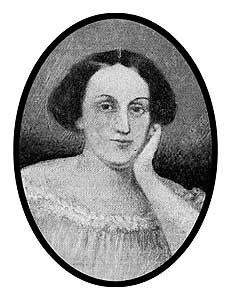 |
| Via Newspapers.com |
This nifty little ghost story appeared in the “San Francisco Chronicle” on January 3, 1882:
John Hargan, a man who has heretofore been credited with an unusual amount of hard common sense, has been driven out of his house at Recene by a series of circumstances that have plunged that little town into a fever of superstitious awe and excitement.
In order to fully understand the case that is at present agitating the denizens of Ten Mile, it becomes necessary to go somewhat into the past. The Hargan family, which consists of Mr. and Mrs. Hargan and two children, occupied a little house close to the foot of Ten Mile avenue before the devastating breath of the recent fire swept over it, and across the avenue tracks. Living with the family temporarily was a prospector whom Mr. Hargan was grub staking. These are the dramatis personae of the affair.
The house consisted of four rooms, the two middle ones being used as sleeping apartments, and one occupied by the Hargans and the other by the prospector.
About two weeks ago the first of a chain of remarkable manifestations took place. The family were one evening seated in the front room when one of the little children sprang up and cried out, “Who is that looking in the window?" and ran tremblingly to her mother's side.
At the same instant there was a loud knock on the glass. Hargin and his friend both ran to the door and threw it open. The moon was shining quite brightly outside and no one in sight anywhere--nothing but a broad expanse of freshly fallen untracked snow within 100 feet of the house. Puzzled and alarmed they returned and questioned the child. All she knew was that a man with a very white face had been looking in through the window, and when she screamed he suddenly disappeared. Mr. Hargan, who is not troubled with any superstitious fancies, tried to laugh off the matter and attribute the ghostly visitation simply to some hungry tramp attracted by the warmth and light within.
An hour or two passed and the matter was well-nigh forgotten, when the family were thrown into consternation by a second rap, however, and sharper than before. Again a rush was made for the door, and again nothing but the untrodden snow greeted their eyes.
By this time, thoroughly alarmed, Mr. Hargan took a seat close to the window. and within a foot or two of the door, and patiently waited. In the course of twenty minutes there were two loud raps at the door, but their echo had scarcely died away when Hargan was on the threshold.
There was not a trace of any one outside, and completely unnerved, he re-entered the room and turned the lock. There were no other manifestations that evening, nor the next, but the day after that, at about noon, while Mrs. Hargan was engaged at some household work, there were three or four impatient raps at one of the middle doors of the house. She turned to it, supposing it to be one of the neighbors, when the door was suddenly pushed open in her face.
No one was there, the room was absolutely empty, and, half fainting with fright, she ran to get her husband. Ever since that time these manifestations have continued, and scarcely an evening passed that the raps were not heard on the doors or windows.
The most startling of them, however, have taken place within the past few days. One night in the latter part of last week the prospector, who was quietly sleeping in the center room, was awakened by feeling something jump upon his feet and crouch there. His mind filled with the uncanny events of the two weeks past, he did not dare to move, and scarcely breathing, lay quite still.
An instant later the thing upon the bed crowded toward him, and he felt the clutch of a hand upon his shoulder. He had pulled the cover up over his head. but could stand it no longer, and gave a loud, long shriek of terror. Tho sound broke the spell, and he felt his legs instantly relieved of the weight, as at the same moment Hargan rushed, revolver in hand, into the room. The story was told in a few words, and they hastily decided to say nothing about it to Mrs. Hargan, who was in a pitiable state of nervous prostration.
Next night the husband made some excuse to sleep with the prospector, and with his revolver in convenient reach, they retired. Late at night, when everything was enveloped in pitchy darkness, Hargan was awakened by someone passing their hands over his side. His first impulse was to reach for his gun, but an uncontrollable terror seized him and he was unable to move. Half fainting, he felt something creep over him and then jump to the floor with an audible concussion. For an instant he lay mute and motionless, and then was aroused by the screams of his wife. The room in which she slept had a window opening to the old town of Kokomo, and when her husband rushed in she said she had awakened to see the black profile of someone between this and her. As she stared at it the head slowly turned, and by a faint phosphorescent glow that surrounded it she made out the figure of a man.
Then for the first time she found her voice, and as she cried out the figure faded and disappeared. This experience was sufficient, and the family sat up during the remainder of the night. As soon as possible the next day they moved out, and since then the house has stood vacant and empty. No one can be induced to even spend a night in it, and the owner is anxious to give it rent free to any tenant who will brave its unknown terrors.
















